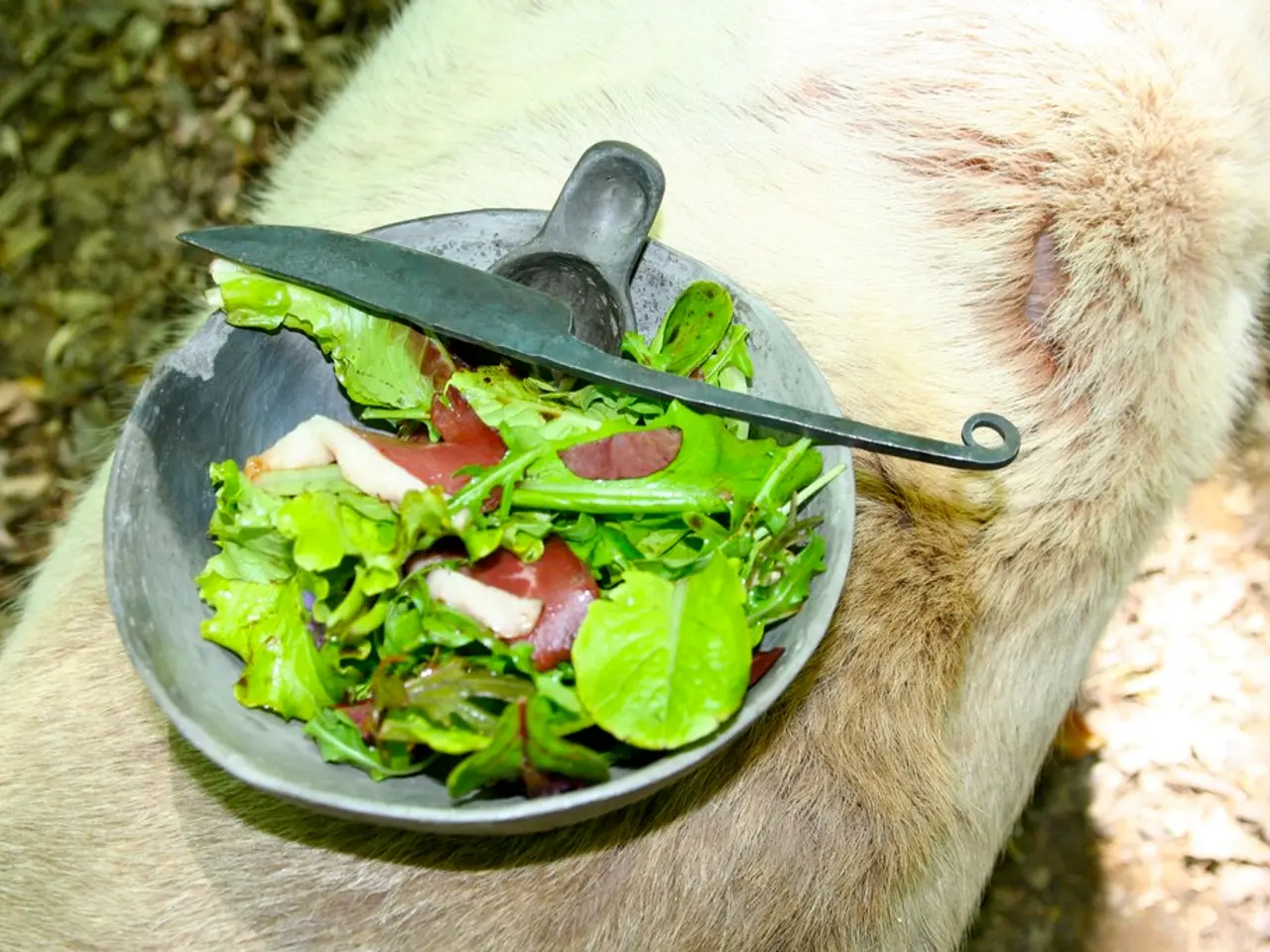Medical procedure using stool transplants for treating Ulcerative Colitis: Interview with a Specialist
Fecal microbiota transplantation (FMT) is a promising, yet not yet definitive, treatment for ulcerative colitis (UC), a chronic inflammatory bowel disease. The process involves transplanting stool specimens from healthy donors into a patient's gut to recreate a diverse microbiota environment.
While the initial results are encouraging, the current state of research shows that FMT is not a standard treatment for UC. Several small clinical trials and meta-analyses suggest that FMT can approximately double the remission rates compared to controls, particularly in mild-to-moderate UC cases. However, the results vary widely due to differences in trial design, dosing, and delivery methods.
In terms of effectiveness, multiple trials report that about 37% of UC patients receiving FMT achieved remission at 8 weeks compared to about 18% in control groups. However, the evidence supports induction of remission more than maintenance of remission. The optimal patient subsets who benefit most, precise dosing regimens, and long-term treatment strategies remain unclear.
Regarding safety, FMT is generally considered safe, especially when rigorous donor screening is implemented. However, some concerns remain about the rate of serious adverse events, although no conclusive evidence yet shows high risk. Regulatory-approved live biotherapeutic products, like Rebyota, are emerging to standardize safety and quality.
For long-term implications, the potential exists for microbiota-based therapies to become personalized, once biomarkers predicting response and patient subgroups are better identified. The long-term effects and durability of remission after FMT in UC are still largely unknown due to limited follow-up data.
In summary, FMT for UC currently appears safe and moderately effective in inducing remission in some patients. However, more large-scale, standardized, and longer-term studies are required to optimize treatment protocols, confirm long-term safety, and identify which patients benefit the most. Regulatory-approved microbiome therapeutics are advancing the field toward more consistent clinical use.
It is important to note that most people who undergo a fecal transplant for UC do so as part of a research study. The future of fecal transplants as a treatment for UC may involve supplementing other treatment strategies, as researchers continue to have an active interest in studying and regulating the gut microbiota in people with UC.
While the short-term side effects of fecal transplant can include nausea, vomiting, abdominal pain, diarrhea, constipation, flatulence, fever, borborygmus (intestinal rumbling or gurgling), serious side effects are rare but can include severe infection, toxic megacolon, and colon perforation. Fecal transplant can be considered as a treatment option for recurrent Clostridium difficile infection (CDI) that does not respond to first- and second-line therapies.
References:
- Vrieze A, Nieuwdorp M, van Nood E, et al. Fecal microbiota transplantation for the treatment of inflammatory bowel disease. Gastroenterology. 2012;142(7):1723–1733.e1. doi: 10.1053/j.gastro.2012.01.015
- Sartor RB. Fecal microbiota transplantation in inflammatory bowel disease: current status and future directions. Ther Adv Gastroenterol. 2018;11(6):335–348. doi: 10.1177/1756283X18779385
- Locke GR, Brandt LJ, Sperling R, et al. Guidelines of care for the treatment of Clostridium difficile infection in adults: 2017 update by the American College of Gastroenterology. Am J Gastroenterol. 2017;112(12):1605–1645.e1. doi: 10.1038/ajg.2017.406
- Khoruts A, Locke GR, Brandt LJ, et al. Guidelines of care for the treatment of Clostridium difficile infection in adults: 2017 update by the American College of Gastroenterology. Am J Gastroenterol. 2017;112(12):1605–1645.e1. doi: 10.1038/ajg.2017.406
- Fecal microbiota transplantation (FMT) is an experimental treatment for ulcerative colitis (UC), a chronic inflammatory bowel disease.
- The process of FMT involves transferring stool samples from healthy donors into a patient's digestive system to reestablish a diverse microbiota environment.
- Despite promising initial results, FMT is not yet a standard treatment for UC due to the varying outcome based on trial design, dosing, and delivery methods.
- Clinical trials suggest that FMT can nearly double the remission rates compared to controls, primarily benefiting mild-to-moderate UC cases.
- The safety of FMT is generally acceptable, especially when donor screening is thorough, but concerns exist regarding the rate of serious adverse events.
- Regulatory-approved live biotherapeutic products, such as Rebyota, are emerging to standardize safety and quality in FMT.
- The long-term efficacy and durability of remission after FMT in UC are unknown due to limited follow-up data.
- The future of FMT as a UC treatment may involve integrating it with other treatment strategies, as researchers continue to investigate the gut microbiota in UC patients.
- Short-term side effects of FMT can include nausea, vomiting, abdominal pain, diarrhea, constipation, flatulence, fever, and intestinal rumbling, but serious side effects are rare.
- Fecal transplant can be a treatment option for recurrent Clostridium difficile infection that does not respond to first- and second-line therapies.
- FMT is a promising area of science and medical-condition research, encompassing chronic diseases like UC, chronic kidney disease, cancer, respiratory conditions, digestive health, eye-health, hearing, health-and-wellness, fitness-and-exercise, autoimmune-disorders, nutrition, cardiovascular-health, psoriasis, neurological-disorders, and skin-conditions.
- Most people who undergo a fecal transplant for UC do so as part of a research study.
- Researchers continue to have an active interest in studying and regulating FMT for UC and other medical-conditions to improve treatment protocols and patient outcomes.




